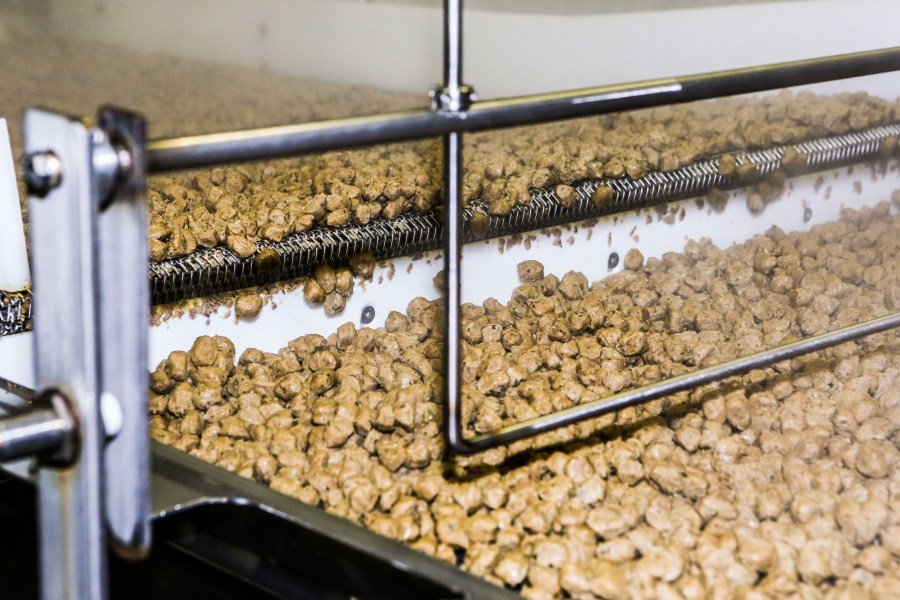AUSTIN (KXAN) — A new study published in science journal PNAS Nexus has a rather unusual finding: owning a dog may be bad for the planet and people don’t realize it.
The report explores how people combat climate change, how effective those actions are and the perception of that effectiveness. It sounds complicated, but it comes down to what we perceive as an effective behavior versus what’s actually effective.
Not owning a dog, it turns out, is more effective at preventing climate change and extreme weather than recycling.
“The main point of the study was to look at whether giving people clear and accurate information about the climate impact of different actions would change what people commit to doing,” said Danielle Goldwert, a Ph.D. student at New York University and the paper’s lead author.
The report looked at individual actions that people in the United States take to prevent climate change, which is known to increase the likelihood for extreme weather events.
“Our data was specifically looking at people’s judgments and misperceptions and changing their actions. We did not collect the data on the actual carbon footprint of the different actions,” Goldwert said.
Examples included using more efficient appliances, eating 30% more vegetarian food, producing renewable energy by having solar panels, reducing food waste, flying less and not purchasing or adopting a dog.
The study also looked at collective actions like voting and taking part in marches.
“We found people overrate low-impact actions like recycling and then underrate higher-impact ones like avoiding flying, eating less meat or using renewable energy,” Goldwert said.
Will owning a dog destroy the planet?
According to research gathered by faunalytics.org, dogs and cats consume 9% of all farmed animals on the planet. This number is higher in the U.S.
Dry pet food production accounts for a quarter of environmental impacts from U.S. farmed animal production. Wet dog food production is even worse.
“I love dogs. My family has three dogs. I’m definitely not out here telling people don’t have pets, get rid of your dogs. It was just one data point among many to help us study how people respond to information,” Goldwert said.
The researchers selected the actions by using a metadata analysis commonly used in climate change study.
“Even though the dog example has gotten so much attention, it was just one of the 21 U.S. specific behaviors that we included in the study set, because we needed a wide range of actions spaced out along the spectrum of impact to test how people learn,” Goldwert said.
Actions were ordered from least effective (using energy efficient appliances) to most effective (not owning a dog). Each was 5% more effective than the action ranked lower on the list.
“This isn’t meant to be an exhaustive, absolute list of not adopting a dog is the best thing you can do for the environment. It’s just how the data broke down once we chose those behaviors using that specific data,” Goldwert said.
Perception and climate change
The team behind the report surveyed 3,895 U.S. residents. Broken into three groups, the participants were asked to rate how effective the various actions were at preventing climate change.
“We needed a wide range of actions spaced out along the spectrum of impact to test how people learn,” Goldwert said.

One group was provided information on each of the actions before they ranked the effectiveness of the actions. Another ranked the actions, then was provided information about the actions and then ranked again. A control group was asked to rank the actions without information provided at all as a control group.
Political affiliation was also checked, but showed no significant correlation.
“We only have so much time and energy and resources that we want to give to the climate crisis, even those of us who care so much about it. So the idea of this was, if you’re going to engage in just a few different behaviors, we want to shift people towards engaging in the most impactful behaviors,” Goldwert said.
Reducing your pet’s impact
Goldwert admits she’s not a pet expert, but she found several steps you can take to reduce your dog’s impact during her research.
“There’s practical steps that pet owners can take, like choosing lower carbon-intensive meats to feed their pet, reducing the amount of beef in their pet’s diet, and exploring more sustainable pet food brands. Some research also suggests that smaller portion sizing, minimizing food waste, can make a difference.”
